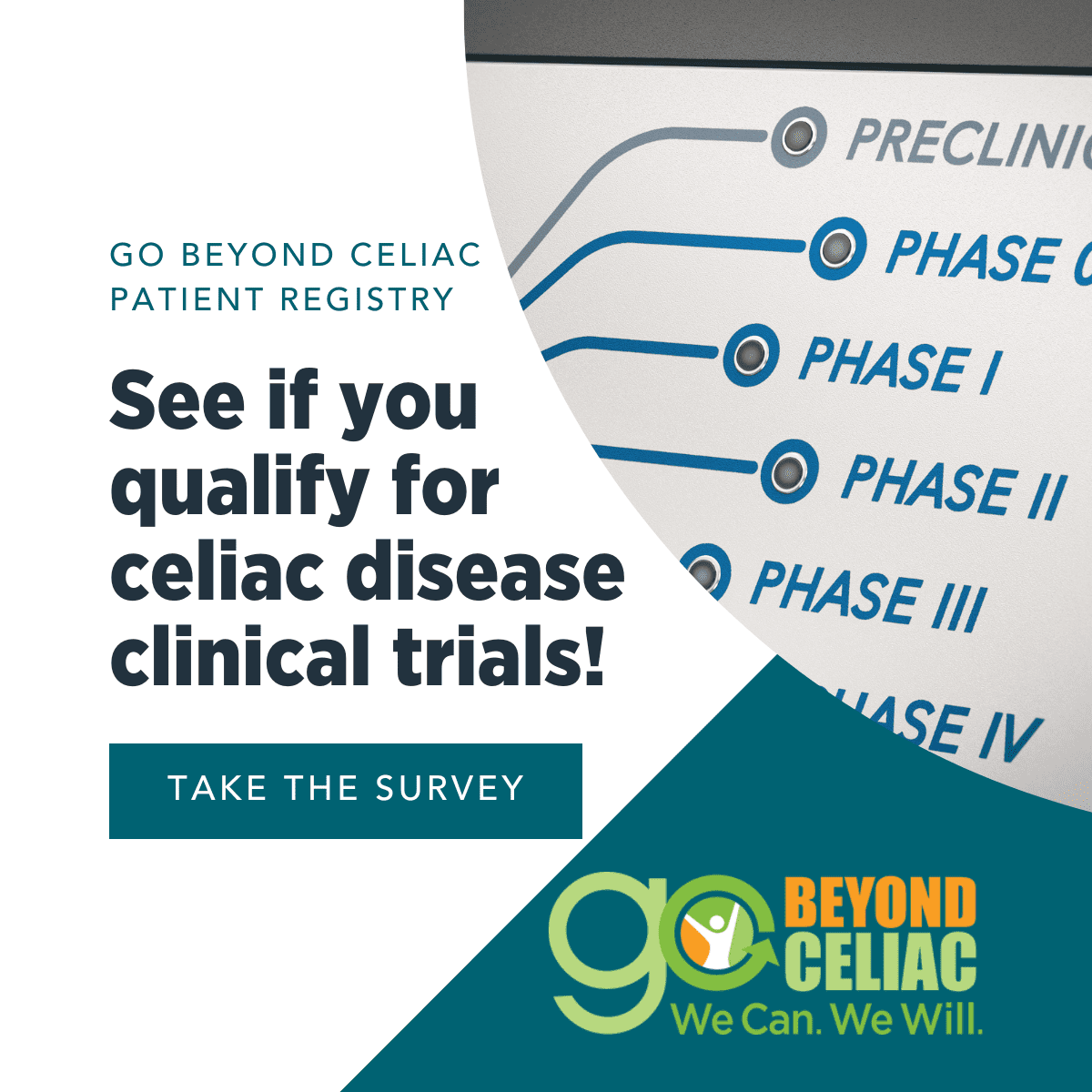Celiac Disease Screening Guidelines Should Be Clearer for At-Risk Individuals
| 3/30/2017 |
|
Philadelphia, PA – March 30, 2017 –On March 28, 2017, the US Preventive Health Services Task Force published a statement on celiac disease testing, announcing that there is insufficient evidence to “assess the balance of benefits and harms of screening for celiac disease in asymptomatic individuals.” Leaders of Beyond Celiac agree with the Task Force that more research, including population-based studies, are needed to assess the value of screening the in the general US population, and in targeted populations at increased risk such as those with family members who have celiac disease and those with other autoimmune disorders. That research will then provide the Task Force with the evidence it needs to say definitively in what situations screening would – or would not – be valuable. In the absence of that research, it is important to continue diagnosing people with celiac disease. “It is critical that the USPSTF statement be interpreted correctly,” says Alice Bast, CEO of Beyond Celiac. “People at increased risk because relatives have been diagnosed or with symptoms should strongly consider being tested. Waiting until definitive research is available to assess any benefits of screening can result in undiagnosed patients suffering needlessly.” Not only will patients and their families benefit, but their healthcare providers, employers and health insurers will benefit as well. People who have been diagnosed and who then avoid gluten, improve the quality of their health, their life and their ability to study or work. They lower their chances of suffering from other serious disease complications, including miscarriage, osteoporosis, malnutrition and cancer. Patients and clinicians should note that the Task Force statement is not a recommendation against targeted screening of higher risk individuals. It is merely stating that the benefits and harms are unknown due to a lack of data. As such, the decision to screen or not screen patients at increased risk for celiac disease should be made on a case-by-case basis. Individuals at higher risk for celiac disease – those with other autoimmune diseases such as thyroid disease or type 1 diabetes, related conditions such as anemia, which can often seem “silent” to patients, and those with a family history of the disease should discuss screening for celiac disease with their doctors. In addition, those with any of the many symptoms should be tested as well. “Doctors need to have a low threshold for testing symptomatic patients for celiac disease because the symptoms of this serious autoimmune disease overlap with many more benign conditions”” notes Alan Ehrlich, MD Clinical Associate Professor of Family Medicine at University of Massachusetts Medical School and Beyond Celiac Board Member. “Both patients and their doctors need to know that early identification and treatment of celiac disease can prevent many years of health damage that cannot be reversed.” Bast is concerned that these recommendations will be misinterpreted to suggest the USPSTF is recommending against screening, rather than simply pointing out there is a lack of data to allow them to make a recommendation, and this may make it difficult for patients to get appropriate diagnostic tests. Experts estimate that roughly 83 percent of people with celiac are undiagnosed – an alarming statistic given the rate of celiac disease is doubling every 15 years. “I know that I share the celiac community’s sincere hope that the day will come when being diagnosed quickly is the norm, and people no longer suffer for years with no answers,” added Bast. “A research plan to address the questions raised by the Task Force and others is important. We also need good guidelines for testing and better physician education and adherence to those guidelines to be sure no one suffers the consequences of undiagnosed celiac disease.” XXX About Celiac Disease Celiac disease is a serious, genetic, autoimmune disorder that affects an estimated 1 in 133 Americans, 83% of whom are still undiagnosed. The disease causes debilitating symptoms, and if left untreated, can lead to serious long-term health problems including infertility, osteoporosis and some types of cancer. About Beyond Celiac Beyond Celiac, formerly known as the National Foundation for Celiac Awareness, is a leading advocacy organization committed to improving awareness and understanding of celiac disease as a serious genetic autoimmune disease; accelerating innovation to support those with celiac disease to live life to the fullest; and forging pathways to a cure. We aim to inspire hope, build a strong community and serve as a trusted resource on celiac disease. For more information, please visit www.beyondceliac.org. Beyond Celiac is a 501(c)(3) non-profit organization. Media Contact: |



